PhD Research
PhD research at Campus Fryslân focuses on the grand challenges of our society. The Faculty’s core philosophy is to connect regional themes with interdisciplinary global issues.
PhD research at the Centre for Sustainable Entrepreneurship is dedicated to one of the main challenges in the modern world economy: the transformation from an oil- and gas-based economy into a circular society. Sustainable entrepreneurship offers the creative potential needed to develop a circular society in which economic, social, and ecological systems are simultaneously balanced and preserved.
The Centre will offer a range of PhD research projects dedicated to disentangle the causes and consequences of sustainable entrepreneurship. The research is interdisciplinary, multi-level and multi-method in nature.

1. Margo Enthoven (Alumna)
Title: Entrepreneurial opportunity recognition and development for sustainability: a problem-solving approach
Supervisor: Prof. Gjalt de Jong
Co-Supervisors: Dr. Berfu Unal and Dr. Emma Folmer
"Entrepreneurship aimed at achieving social and environmental goals has the potential to catalyze sustainable development by providing value for society and the environment while achieving economic growth. But what makes entrepreneurship with a sustainability goal successful? During my PhD I want to provide insight into this question by finding which traits characterize a successful sustainable entrepreneur. With this research, I hope to be able to contribute to a more sustainable society."
Blogs
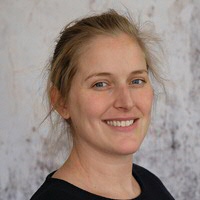
2. Femke Vrenegoor (Alumna)
Title: Evaluating how the attitudes of micro and small sized accommodation entrepreneurs translate into sustainable behaviour
Supervisor: Prof. Gjalt de Jong
Co-supervisor: Dr. Elena Cavagnaro
"Since sustainability has been a trend for many years now, we can see that in the hospitality industry it has also taken an important place in the daily operations of hotels. Hotel entrepreneurs choose to engage in CSR for many different reasons, and some of these entrepreneurs make the choice to get their sustainability efforts certified with for example a Green Key certificate. However, not all entrepreneurs will try to reach the highest level possible within the certificate, or push to reach more than the minimum number of required criteria within their level.
My research will try to understand the reasons for this behaviour, and evaluate whether these reasons can be connected to their motivation to engage CSR in the first place. Once the motivations of the hotel entrepreneur and their behaviour are understood, I wish to try to nudge them to more sustainable ecolabel application.
In my research I have chosen to focus on SME hotels as they comprise a large portion of the total amount of hotels in the Netherlands."
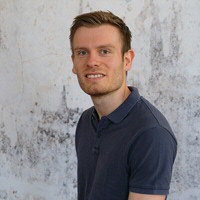
3. Hendrik Thelken (Alumnus)
Title: The process of intention formation in sustainable entrepreneurship
Supervisor: Prof. Gjalt de Jong
Co-Supervisor: Dr. Berfu Unal
"One of the central questions in sustainable entrepreneurship research is why some individuals become sustainable entrepreneurs, while others found a conventional firm or do not become entrepreneurs at all. In my research I therefore look at intentions to start sustainable enterprises, which allows me to work very interdisciplinary as I combine theories and ideas from entrepreneurship, sustainability sciences and psychology.
The central questions are, where the intentions to start a sustainable enterprise come from and whether these factors leading to such intentions can be stimulated or learned. In answering these questions I would like to help practitioners, teachers and public authorities with the promotion of sustainable entrepreneurship "

4. Manon Eikelenboom (Alumna)
Title: Internal capabilities for sustainable and circular business
Supervisor: Prof. Gjalt de Jong
Co-Supervisor: Dr. Tom Long
In order to achieve a sustainable development of our society, businesses need to be involved. However, implementing sustainability can be a difficult task for companies as combining social, environmental and economic goals may require extensive resources and cause complexities as well as contradictories. For example, focussing on the reuse of materials in houses may have negative social impacts such as a decreased feeling of comfort. In order to successfully balance social, environmental and economic goals, companies need to be adaptive and able to deal with continuous change.
In my PhD I will analyse the internal firm capabilities that help businesses achieving a balance between social, environmental and economic goals. I will focus on dynamic capacities, internal actors including leaders and employees, and new business strategies and models.
Complete thesis

5. Hellen Dawo (Alumna)
Title: Sustainable entrepreneurship: Opportunities to facilitate ecological, socio-cultural and economic development in a protected nature area.
Supervisor: Prof. Gjalt de Jong
Co-Supervisor: Dr. Tom Long
In some instances, protected nature areas also have a human population. A settled nature area provides a unique context in which to study sustainable entrepreneurship. Here, man and nature interact closely, in a sensitive ecosystem. This interplay faces ecological, socio-cultural and economic challenges. Climate change, ecological ecosystem depletion, cultural erosion, unemployment, population and economic decline are examples of the 'wicked problems' such areas face. These challenges require tools that consider the three dimensions of sustainability, that is, ecological , socio-cultural and economic dimensions. Sustainable entrepreneurship is such a tool that could solve these 'wicked problems'. However, for small and medium sized entrepreneurs, combining these dimensions in their business plans is a problem. They lack sufficient resources and knowledge with which to operate sustainably.
My study will investigate the environment in which small and medium sized entrepreneurs in protected nature areas exist, in order to identify the challenges they face in achieving the three dimensions of sustainability. It will then use this, as a base to explore the ways the entrepreneurial environment could be improved, using collaboration and innovative business models.
6. Monique de Ritter (Alumna)
Title: Mission-driven entrepreneurship in ecosystems for sustainable systems change.
Supervisor: Prof. Gjalt de Jong
Co-Supervisor: Prof. Annemieke Roobeek
In this time of systems change entrepreneurs can contribute to finding solutions for challenges the world faces. Focusing on technology is not sufficient, when we do not address organizing principles to change the way of doing business and stimulating innovation. This PhD research has been carried out with the assumption that current and still dominant organizing principles based on hierarchies in business and society are inadequate or even counter-effective in achieving a more sustainable economy. Thereto, this dissertation introduces a five-layered conceptual model based on systems thinking that offers a guidance to identify and analyze the organizing principles needed for sustainable systems change. The main aim of this research was to obtain in-depth insights into how this conceptual model works in practice, with an emphasis on the meso-level (ecosystem) and how this level connects the micro-level (mission-driven entrepreneur) and macro-level (sustainable systems change).
The research has found that the ecosystem indeed plays an important role in leveraging the initiatives of mission-driven entrepreneurs for sustainable systems change. New skills and knowledge are needed in order to effectively apply organizational principles, such as deep collaboration and networking, to working in ecosystems. This dissertation shows that mission-driven entrepreneurs are inspiring change agents in the system with their company as a vehicle for change. However, for more systemic change needed for a sustainable economy, it is necessary to work together in ecosystems. The idea here is that there will be a far-reaching collaboration between various organizations, both from the private and the public sector, both large companies and smaller enterprises. These organizations therewith transcend the boundaries of traditional industries and are instead organized around a specific issue or theme. However, collaboration in ecosystems does not happen by itself; specific knowledge and skills are needed, such as systems thinking, network approaches, and leading multiparty dialogues.
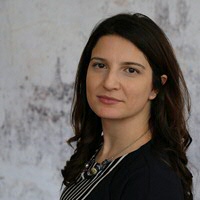
7. Angela Greco (Alumna)
Title: Changing for good: Transforming existing organizations into sustainable enterprises.
Supervisor: Prof. Gjalt de Jong
Co-Supervisor: Dr. Tom Long
How can existing organizations induce and maintain the process of sustainable entrepreneurship? Because sustainable development cannot occur without sustainable businesses, understanding how to transform organizations into sustainable ones is essential. The activities of a sustainable entrepreneur are consistent with the United Nations ‘Sustainable development goals.
This research is based on empirical observations resulting from an ethnographic study at a housing association implementing a new strategy to transform their entire portfolio into energy neutral houses. By 2050, the housing stock in The Netherlands needs to be transformed to meet the CO2-neutral national targets. This forces housing association to undergo multiple changes. Changes in the way they organize, changes in the way the communicate with the tenants, and in the way they think about social impact. Initial attempts to undertake these changes have failed to properly consider the impact on tenants' well-being.
This PhD research identified four main aspects in which existing organizations can initiate and maintain the sustainable entrepreneurship process: 1. Leadership, i.e. a change-maker who can initiate the transition and build an external network of supporters; 2. A decision making process in which internal organizational identities are coupled to external societal demands; 3. A responsive approach to sustainability as opposed to a primarily proactive of reactive attitude towards environmental and social interventions; 4. Joint innovation initiatives that help organizations to reformulate the sustainability problem. Simultaneously, this PhD highlights that failing in meeting the users’ needs either leads to unintended consequences or failure of entrepreneurship efforts.

8. Huseyin Can Saral
Title: Environmental transformational leadership and employee green behavior within organizations
Supervisor: Prof. Gjalt de Jong
Co-Supervisor: Dr. Berfu Unal
Reducing ecological footprints has become among the most important items on the agendas of companies because of progressively evident global-scale environmental problems such as climate change and biodiversity loss. Previous research did argue that employee engagement is crucial in order to make intended changes: to reduce the environmental impact of organizations effectively. But first of all, what kind of factors would be predictive for employee environmental behavior at the workplace? I propose organizations' leaders have a direct or indirect impact on employees’ environmental behavior considering that they have an impact on employees' perspectives and attitudes.
In my PhD I would like to find out what kind of characteristics can define environmental leaders and how these leaders exert their influence on the organizations’ employees. An extensive analysis of the leader-employee relationship that can influence employees’ environmental behaviors will help companies to implement effective strategies that will result in a decrease in negative environmental impact.
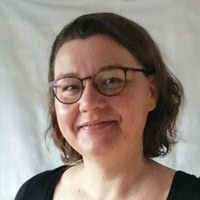
9. Valerija Golubic
Title: How do social enterprises create social value?
Supervisor: Prof. Gjalt de Jong
Co-supervisor. Dr. Emma Folmer
Social enterprises are organisations that employ business logic and commercial activities in order to address societal problems, such as poverty, homelessness, and social exclusion. They play an important role in building a sustainable society as they are capable of developing innovative solutions to issues faced by individuals and communities.
Social enterprises employ dual logic in their operations – business and social welfare one, and need to create both social and financial value in order to fulfil their mission. The prevalent opinion is that social and financial value creation cannot go hand in hand, and that one needs to be sacrificed for the sake of the other. So how do social enterprises create social value, which is their raison d’etre, taking into account that they are faced with various tensions resulting from their dual logic nature?
In my research I will firstly tests the relationship between social and financial performance of social enterprises to identify whether they are substitutes or complements, and whether the relationship differs across different business models that they employ. Secondly, I will look at the processes of business model changes in social enterprises, and the influence of those changes on social value creation. Finally, I will look into why and how social enterprises measure their social value creation.
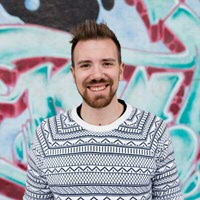
10. Jens Kaus
Title: Evolution of sustainable entrepreneurial ecosystems
Supervisor: prof. Gjalt de Jong
Co-supervisor: Dr. Niels Faber
The successful transition towards a more sustainable society will require disruptive innovations that aim to balance social, environmental, and economic objectives. Sustainable entrepreneurs are a type of actor that can succeed at developing radically new ways of organizing value to address today’s most pressing challenges and contribute towards sustainable development. However, entrepreneurship cannot be viewed isolated from the context – or entrepreneurial ecosystem – in which it operates.
In my research, I investigate the dynamics of sustainable entrepreneurial ecosystems. The sustainable entrepreneur is at the core of these ecosystems and its main purpose is to foster the emergence and development of sustainable ventures. In particular, I examine how these types of ecosystems may come into existence, as well as how they can be governed and sustain themselves.

11. Eric Fath-Kolmes
Title: Dynamic Capabilities for Sustainable Enterprises: insights from the construction industry
Supervisor: Prof. Gjalt de Jong
Co-supervisor: Dr. Tom Long
With the global emergencies of climate change and biodiversity loss, there is a growing need for organizations to shift their strategy and mindset towards sustainability goals. However, organizations are underperforming in their transformation towards sustainability, as their focus is still towards economic gains, with limited emphasis on environmental or social aspects. These companies need new capabilities for this complex and rapidly changing environment.
In my research, I explore these dynamic capabilities and the important role they can play in helping companies transition towards and sustain their sustainability performance. Focusing on companies in the construction industry, I will develop in-depth theoretical and empirical insights on successful dynamic capabilities for sustainability.

12. Geesje Duursma
Geesje Duursma, MSc, is an external PhD student at the Campus Fryslan, University of Groningen, within the Chair Group Sustainable Entrepreneurship. In daily life she owns her own restaurant and is active in local hospitality and tourism business associations. Her research focuses on the impact of hospitality in non-hospitality organizations working with volunteers. Volunteers have an essential role in creating a hospitable experience. However, an in-depth understanding of the role of volunteers is an under-researched area. This research uses a multiple case study approach. The case studies are located in a museum, a library and a hospital. The overall goals are to theorise hospitality and volunteers and to develop a conceptual model that does justice to the complexity and contextual nature of hospitality and volunteers in non-hospitality organisations.
13. Rimvyde Muzikeviciute
Current attempts to foster a much-needed change in contemporary food production and consumption practices are slow and not sufficiently successful. There is a pressing need to foster a radical change in the societal attitude towards food production and consumption and accordingly, a behavioural change of actors involved to foster more sustainable food cultures. This project aims to tackle this issue by focusing on a behavioural change, taking local community as a key starting point where intrinsic motivation to behavioural change towards sustainability can be fostered the best by using a radically new approach with an innovative focus on artistic and cultural practices. So far, there is insufficient awareness of the benefits of such an approach. Therewith, this project proposes a place-based approach to sustainable practices which centres on the importance of culture and human values that are rooted within it and thus are distinctive to a place (Horlings 2015).
The core aim of this project is to evaluate the impact of artistic initiatives designed to enhance sustainable agricultural practices on local landscapes. The main research question underlying the project is ‘How can art-led initiatives which foster social agriculture and local sustainable food practices shape sustainable local landscape?’ This question will be tackled by executing international comparative research through cross-case analysis and with the use of Arts- based methods. The proposed case studies regard arts and cultural practices embedded within a local sustainable food culture and agricultural context. This innovative methodology will provide insight into the possibilities of artistic initiatives being turned into modus operandi for the embedding and the establishment of sustainable local food consumption in local communities. To generate a desired impact towards a sustainable future and enhance artful sustainability governance, strong place- based communities with local initiatives and their successful practices will be mapped through this research.
14. Stefano Bertorini
Title: Crafting New Regenerative Agriculture Business Models. Sustainable Food Production Beyond the Industrial Agriculture Era
Author: Stefano Bertorini
Co-authors: Prof. dr. Gjalt de Jong, Dr. ir. Niels Faber
Stefano Bertorinis research aims to learn how to design and influence business models in agriculture to transition towards a regenerative and distributive design. Niche innovations, such as agroecology, organic agriculture, and regenerative agriculture, have been proposed as solutions to get there. However, they have been blocked by different mechanisms, including inadequate economic incentives and resistance from the current regime. Niche innovations alone are not sufficient to overcome blocking mechanisms because these barriers are often deeply ingrained in the existing system, constituting systemic problems.
The study proposes the Regenerative and Distributive Agriculture Business (RADA) concept, which combines sustainable agriculture niche practices, business model design, and their dynamic interactions with institutions. The model explains how the Business Model Template (BMT) (Jonker & Faber, 2021), Deep Design of Business (Sahan et al., 2022), and recognition of Institutions (Hoffman, 1999) are interrelated and contribute to the functioning of these businesses in the current industrial agriculture regime (Bidmon & Knab, 2018). Additionally, this paper situates RADA as a participant with dynamic interactions within the framework of the Multi-Level Perspective (MLP) on socio-technical transitions (Geels, 2011; Geels & Schot, 2007).
Paper 1 proposes a theoretical foundation for understanding how RADA works, introducing the three components that compose it. Paper 2 examines the obstacles that RADA-esque farmers must overcome when transitioning away from industrial agricultural practices. Paper 3 explores the dynamic interactions between institutions and RADA. Finally, Paper 4 focuses on the application of the DEAL guide to redesigning businesses in a series of Doughnut Economics Core workshops (Sahan et al., 2022).
| Last modified: | 02 November 2023 2.13 p.m. |
